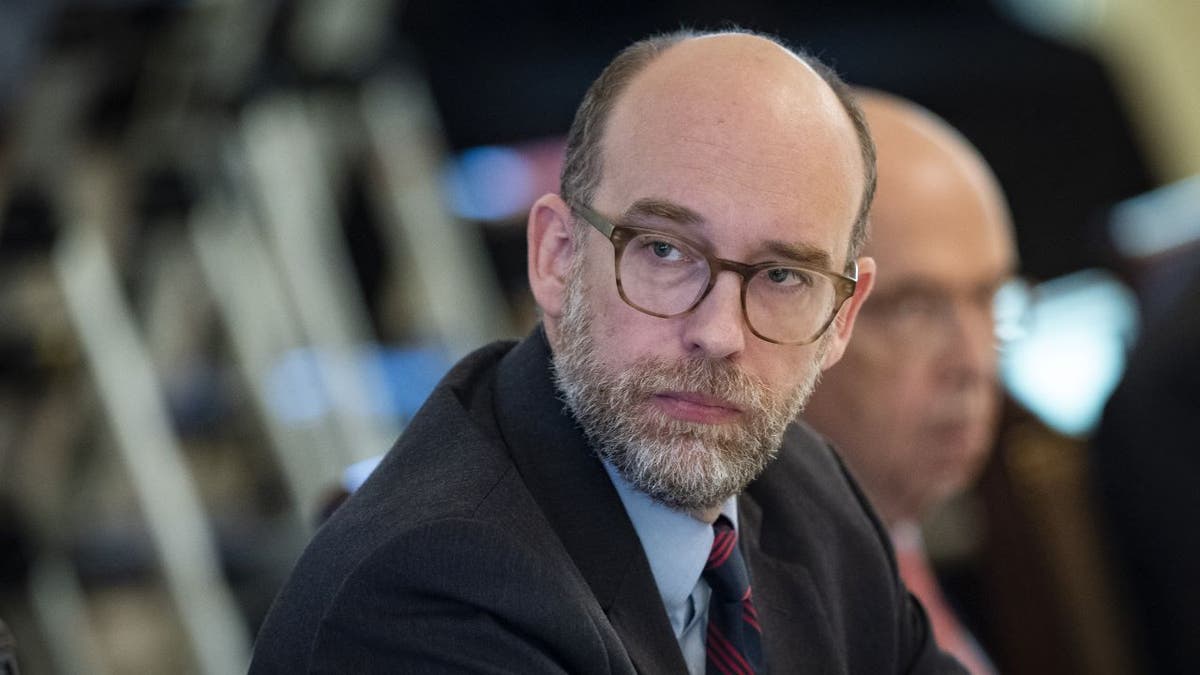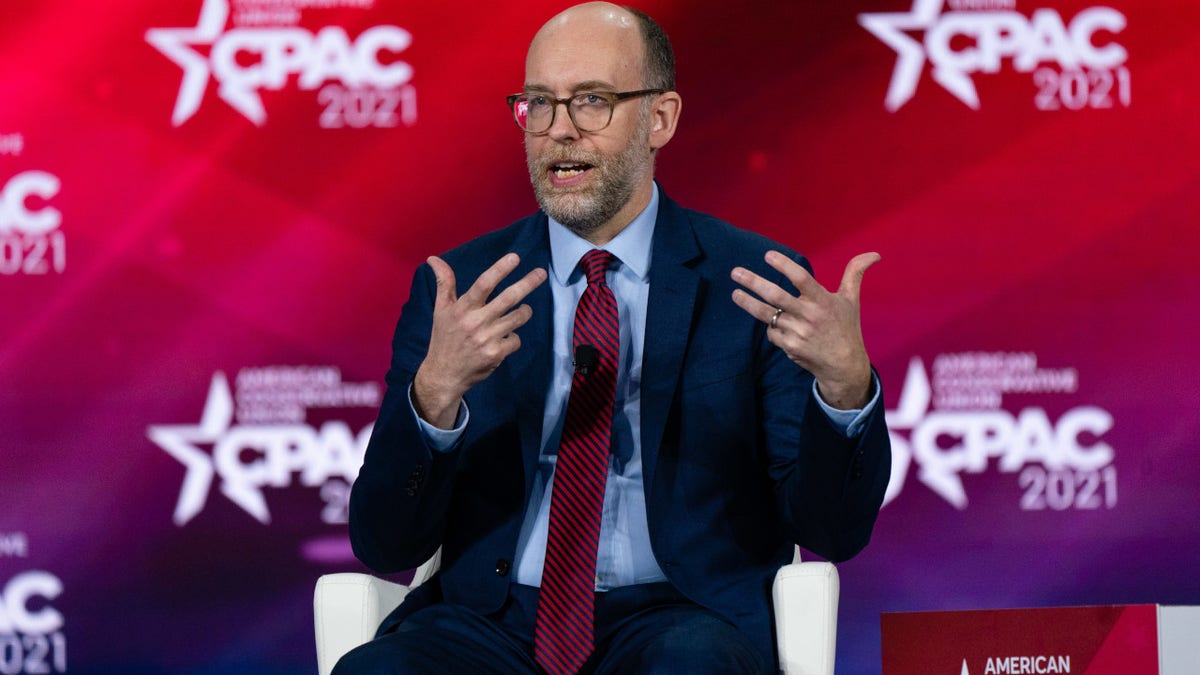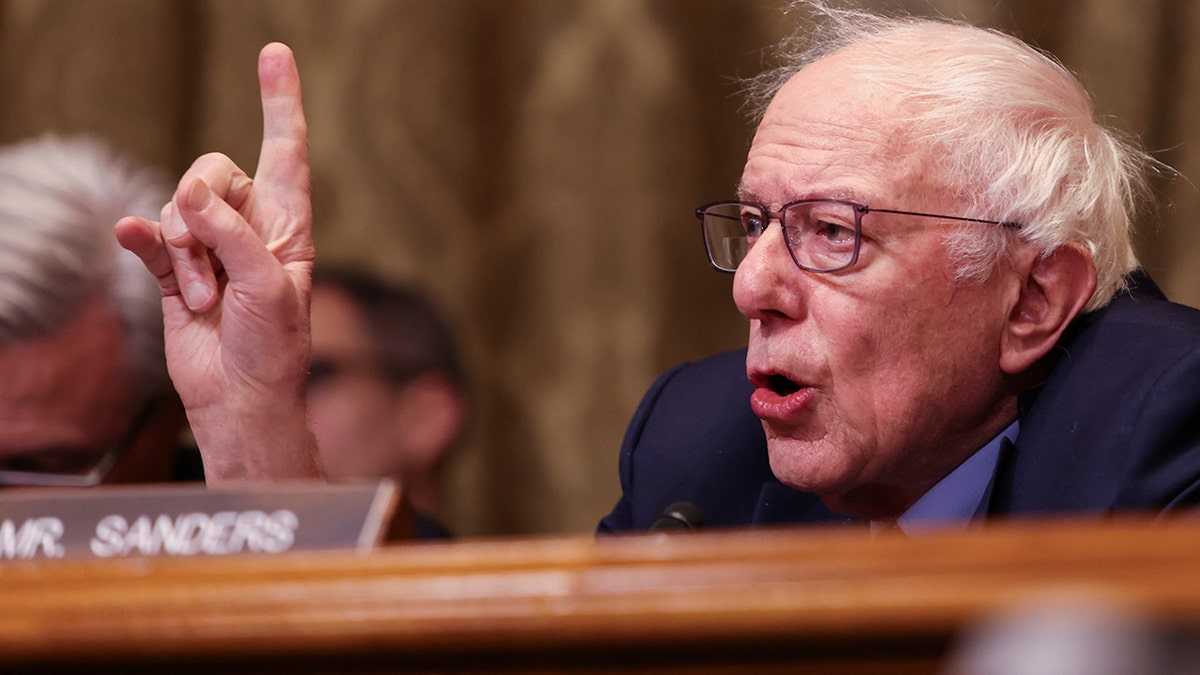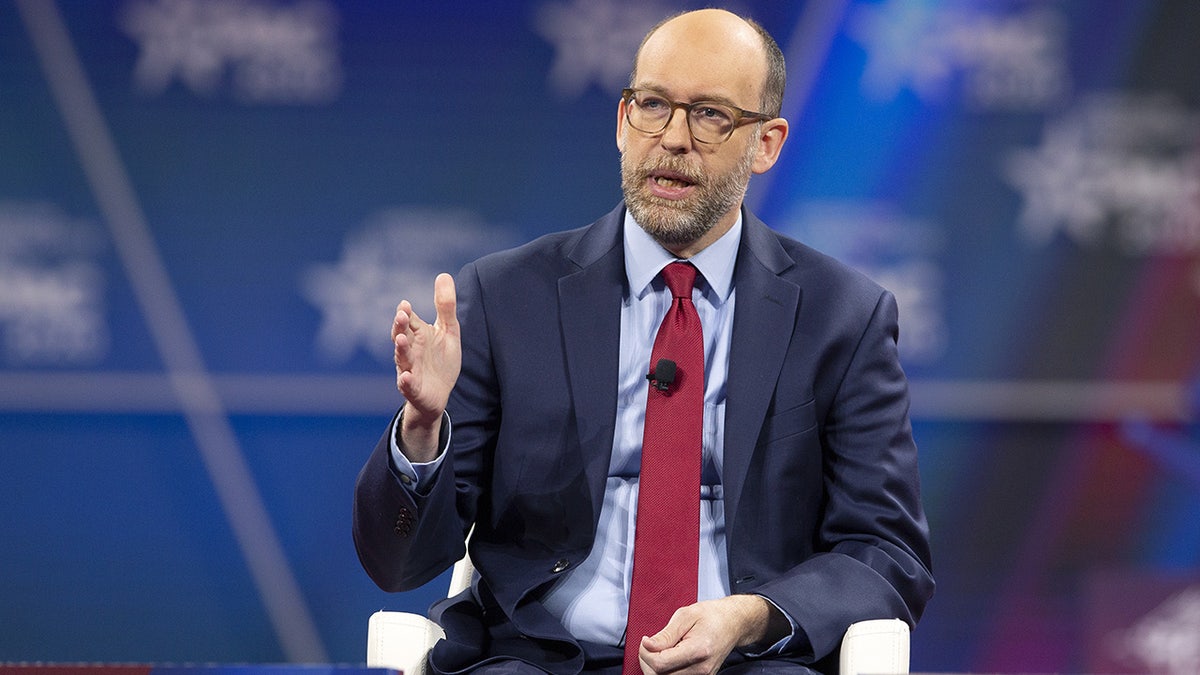A power struggle concerning government spending is heating up in Washington, D.C., igniting what some Senate Democrats call a “constitutional crisis” amid the Trump administration’s efforts to curb government waste.
The conflict stems from President Donald Trump’s pick to lead the Office of Management and Budget (OMB), Russell Vought, and was exacerbated when the Trump administration announced it would freeze federal grants and loans on Jan. 27 in an OMB memo.
Both Trump and Vought share a common point of contention: the Impoundment Control Act.
The 1974 law, which Trump and Vought both argue is unconstitutional, reasserts Congress’ power of the purse and bars the executive branch from unilaterally side-stepping Congress and withholding appropriated funds.
However, many legal experts warn that the matter is not up for debate, and the courts are clear; it is unconstitutional for the executive branch to divert dollars Congress has authorized.
The Senate voted to confirm Vought on Thursday by a 53–47 margin along party lines, following a 30-hour delay from Democrats in protest against his nomination.
Republicans claim that Vought is qualified to lead the department because he previously served in that role during Trump’s first term. Sen. Majority Leader John Thune, R-S.D., said Wednesday that Vought would “be able to hit the ground running.”
However, Democrats remained staunchly opposed to Vought’s nomination and claimed his views on impoundment disqualified him from the role, with Sen. Richard Blumenthal, D-Conn., arguing on Wednesday that Trump and Vought believe “they may be above the law.”
However, what is the Impoundment Control Act? Here is a look at what’s up for debate regarding government spending — and what changes could emerge during the Trump administration.
What is the Impoundment Control Act?
Article I of the U.S. Constitution grants Congress the authority to manage the federal budget to determine funding decisions to balance power between the branches of government.
However, the act of impoundment occurs when the executive branch chooses to not spend these approved dollars from Congress, since the executive branch and the Office of Budget and Management do oversee the actual spending of the approved funds.
Should a president want to spend less than what Congress has budgeted, the executive branch must secure approval from Congress. Deferring funds also requires the executive branch to inform Congress.
As a result, Congress passed the 1974 Impoundment Control Act to establish these proper channels of congressional oversight if a president chooses to withhold or defer these funds.
‘ULTRA-RIGHT’: TRUMP BUDGET CHIEF PICK RUSSELL VOUGHT FACES FIRE FROM DEM SENATORS
President Donald Trump’s nominee for Office of Management and Budget director, Russell Vought, testifies during the Senate Finance Committee nomination hearing in the Dirksen Senate Building on Jan. 22, 2025 in Washington, D.C. (Kayla Bartkowski/Getty Images)
Vought’s opponents voiced concern that his leadership would lead to more cases like the freeze of federal grants and loans disclosed in an OMB memo on Jan. 27, a move that Democrats say was illegal and violated the Impoundment Control Act.
“As much as Trump desires it, the president is not a king,” Senate Budget Committee ranking member Jeff Merkley, D-Ore., told reporters on Jan. 28. “As much as Trump desires it, a law is not a suggestion.”
“These are not questions of opinion,” Merkley said. “These are principles at the heart of our constitutional system. It’s at the heart of our checks and balances, and thus we have a constitutional crisis.”
‘This is Congress’ job’
Vought repeatedly defended his stance that the Impoundment Control Act was unconstitutional in multiple confirmation hearings and claimed that presidents historically could spend less than what Congress had earmarked prior to 1974.
Proponents of executive impoundment frequently point to Thomas Jefferson’s administration in 1803, when Congress appropriated funding for 15 gunboats. However, Jefferson held off on purchasing the boats to not aggravate France amid delicate discussions between then-Secretary of State James Madison and Napoleon. The purchase of the boats eventually became unnecessary following the Louisiana Purchase.
Additionally, Vought’s Center for Renewing America, a nonprofit Vought founded in 2021, has said impoundment allows the executive branch to exert fiscal discipline and that the president has the authority to determine if funds are used in the most efficient manner.
Vought did not respond to a request for comment from Fox News Digital.
However, according to multiple legal experts, the Constitution and the courts are clear that spending appropriations fall under the parameters of the legislative branch.
Michael McConnell, director of the Constitutional Law Center at Stanford Law School, told Fox News Digital, “The president has the constitutional obligation to take care that the laws be faithfully executed, and that includes spending.
“So I don’t know where Mr. Vought gets the view that somehow the president has the right to decide what the government is going to spend money on,” he said. “This is Congress’ job.”
Despite Trump and Vought’s views that the Impoundment Control Act is unconstitutional, McConnell said that he believed there is “no reasonable prospect that the court is going to agree with that.
“The person who would have been the recipient of the funding will have some standing to sue,” McConnell said. “So, I would assume that if there’s an impoundment, there will be an immediate lawsuit under the Impoundment Control Act.”
TRUMP TREASURY PICK: EXTENDING TRUMP TAX CUTS ‘SINGLE MOST IMPORTANT ECONOMIC ISSUE’
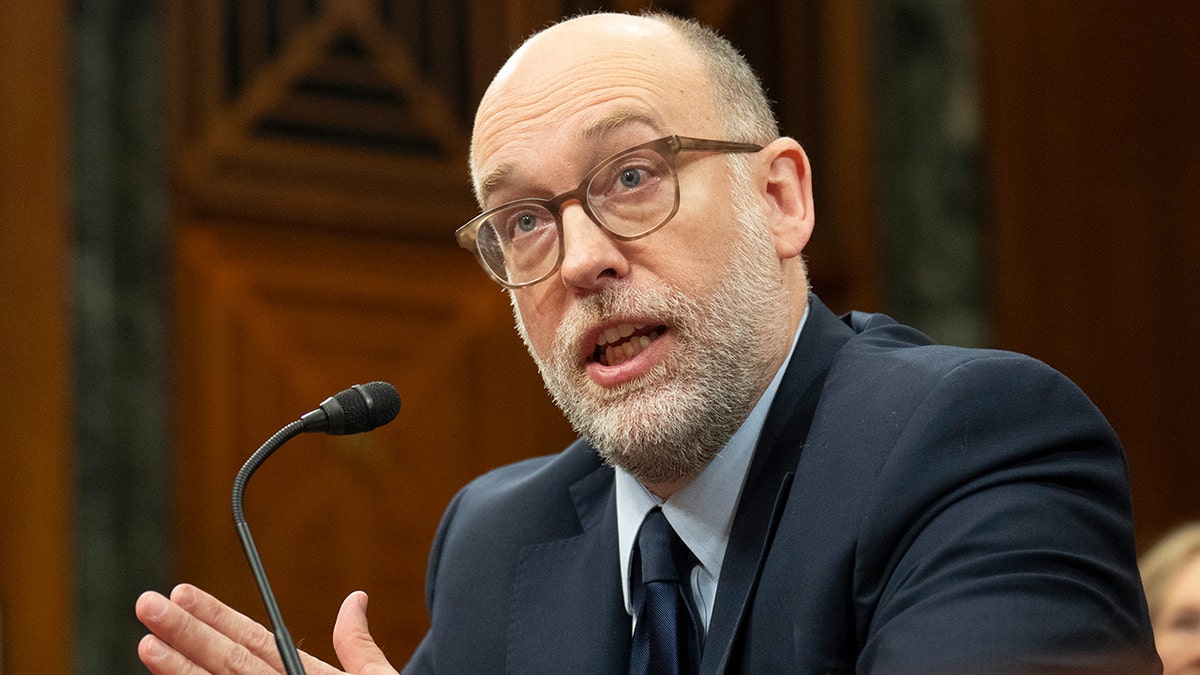
Russell Vought repeatedly defended his stance that the Impoundment Control Act was unconstitutional in multiple confirmation hearings. (Jacquelyn Martin/The Associated Press )
Other legal experts agreed that should the Trump administration attempt to withhold funds, the courts would step in and assert that there is no legal basis to do so.
That is because this is not a murky legal issue, according to Georgetown Law professor Stephen Vladeck.
“There are contested issues of constitutional law, but this just isn’t one of them,” Vladeck told Fox News Digital. “Were it otherwise, there wouldn’t be much point in having a legislative branch.”
Legal experts claim the courts historically have upheld the constitutionality of the Impoundment Control Act, and point to the 1975 case Train v. City of New York. In that case, the Supreme Court determined the Environmental Protection Agency must use full funding included in the Federal Water Pollution Control Act Amendments of 1972, even though then-President Richard Nixon issued orders not to use all the funding.
Vought himself admitted in a Jan. 22 confirmation hearing that no court of law has found the Impoundment Control Act unconstitutional.
Fallout from the OMB memo
The courts did step into action following the recent OMB memo outlining a pause in federal grants and loans, and two federal judges have temporarily blocked the freeze.
Although the White House did rescind the memo pausing the federal aid on Jan. 29, White House press secretary Karoline Leavitt said that the move did not equate to a “rescission of the federal funding freeze.”
The White House did not respond to a request for comment from Fox News Digital on Vought’s nomination and comments from Democrats that the memo was “illegal.”
The memo did not appear to alarm Republican leadership in Congress, who publicly characterized the pause as standard protocol during an administrative turnover.
“I think that’s a normal practice at the beginning of administration, until they have an opportunity to review how the money is being spent,” Senate Majority Leader John Thune, R-S.D., told reporters on Jan. 27. “We’ll see kind of what the extent of it is, and … what they intend to do in a more fulsome way. But for now, I think it’s just, it’s just kind of a preliminary step that I think most administrations take,” Thune said.
House Speaker Mike Johnson, R-La., also told reporters on Jan. 27 the memo did not concern him and that he “fully” supported it, labeling the directive a “common application of common sense.”
Even so, the memo further intensified opposition to Vought’s nomination. Specifically, Democrats urged the entire Senate to reject Vought’s nomination on Jan. 30 in response, following a committee vote advancing his nomination to the Senate floor.
Merkely noted that Vought oversaw the OMB in 2019 when the office held up $214 million in military aid for Ukraine — an issue that emerged as a key point in Trump’s first impeachment. Ultimately, the Government Accountability Office determined in 2020 the move did violate the Impoundment Control Act, ahead of Trump’s Senate impeachment trial. The Senate ultimately voted to acquit Trump.
Therefore, Merkley characterized Vought as “dangerously unfit” to lead OMB and a “dangerous threat to our constitutional system of representative democracy.”
Josh Chafetz, a professor at Georgetown Law, said such language such as “constitutional crisis” is reasonable considering Congress’s spending power is one of the few but critical ways the legislative branch ensures the executive branch doesn’t exert too much power.
“These kinds of impoundments are not just unconstitutional, but they’re actually anti-constitutional,” Chafetz told Fox News Digital. “They strike at the very foundation of our constitutional order.”
Reform on the horizon?
Democrats also don’t believe the recent memo is an isolated incident. Sen. Minority Leader Chuck Schumer, D-N.Y. cautioned on Jan. 30 that Vought would seek to withhold funds again overseeing OMB — if the Senate confirms him.
Vought himself signaled the Trump administration could initiate reform on impoundment law. In a confirmation hearing on Jan. 22, Vought told lawmakers that while an exact strategy is not intact yet, the Trump administration plans to complete a review with the Justice Department to explore the “parameters of the law with regard to the Impoundment Control Act,” should the Senate confirm him.
Vought also noted that some lawmakers who agree with his position on impoundment have proposed legislation on the matter. For example, Sen. Mike Lee, R-Utah, introduced legislation in December 2024 to repeal the Impoundment Control Act, arguing that the law’s “unconstitutional limitations” on the executive branch have “contributed to a fiscal crisis.”
GET TO KNOW DONALD TRUMP’S CABINET: WHO HAS THE PRESIDENT-ELECT PICKED SO FAR?
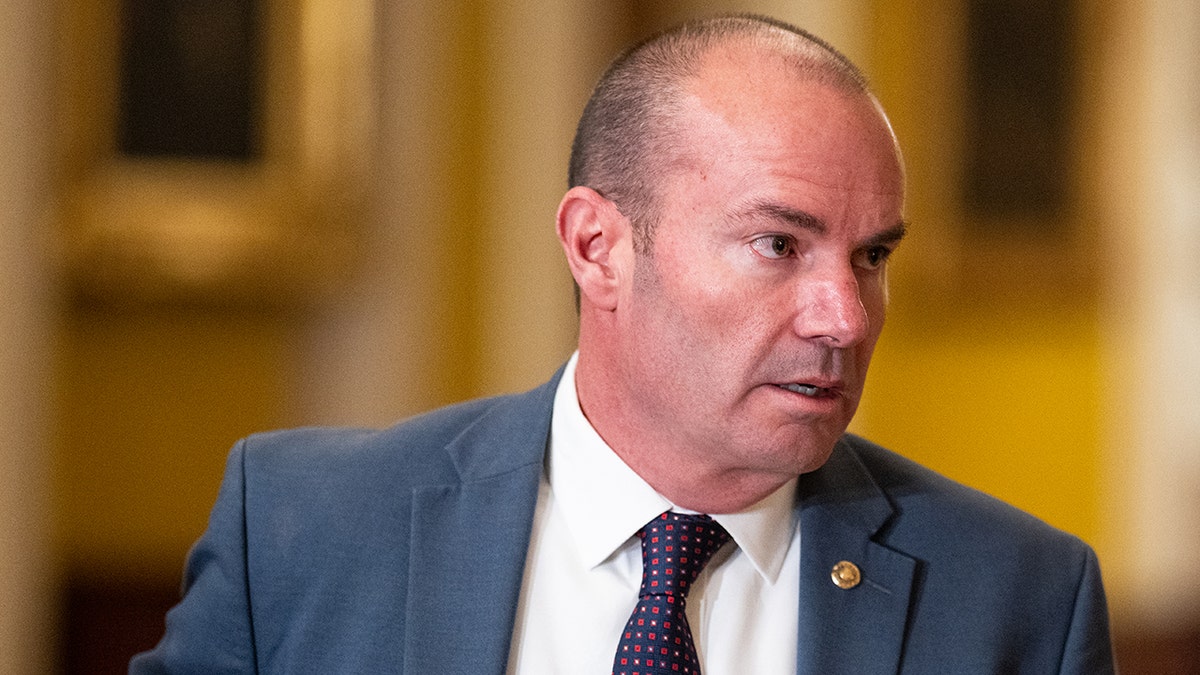
Sen. Mike Lee, R-Utah., previously introduced legislation that would repeal the Impoundment Control Act. (Bill Clark/CQ-Roll Call, Inc via Getty Images)
While many legal experts agree the legislative branch is the proper channel for reforming the Impoundment Control Act, Chafetz doubts there is an appetite to do so and that lawmakers on both sides of the aisle would ultimately view such attempts as an “attack on their institution.”
CLICK HERE TO GET THE FOX NEWS APP
As a result, Vladeck said that the Trump administration only has two means to navigate the Impoundment Control Act: either adhere to it or modify it.
“As for what we can expect going forward, it’s entirely possible that the administration will try to push the envelope,” Vladeck said. “But the onus ought to be on the administration to follow the procedure Congress and the president agreed to in 1974 — or to make the case for why he shouldn’t have to.”


